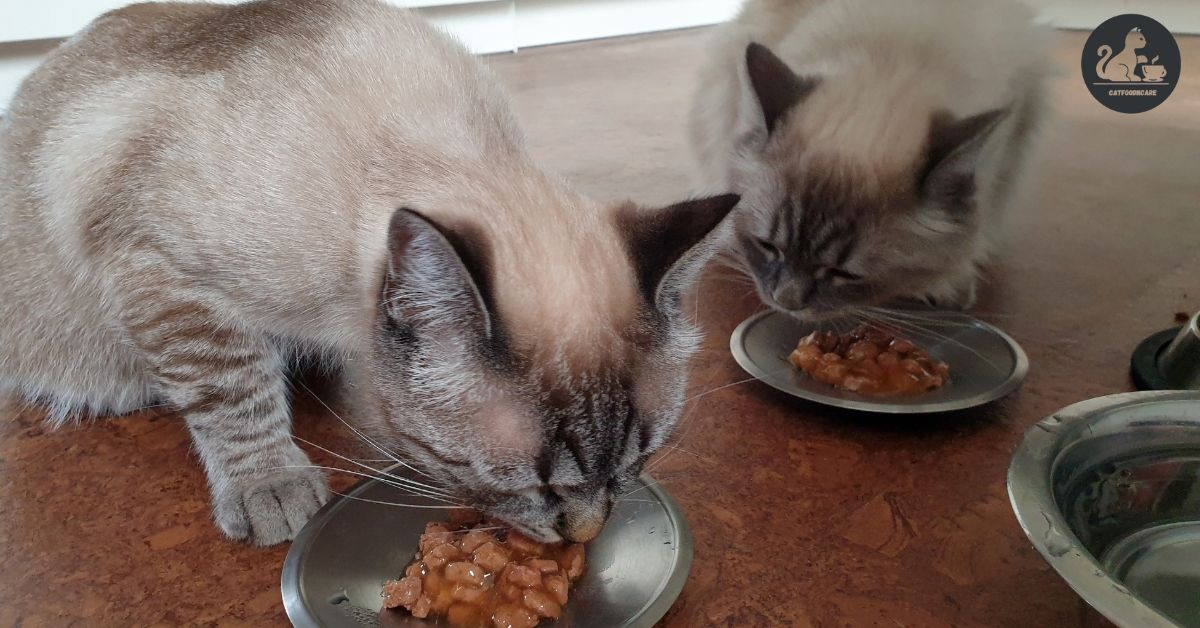Are you a cat owner wondering if you can feed your feline friend chicken liver? Yes, cats can eat chicken liver, but there’s more to it than just serving it up.
This blog post will provide a comprehensive guide on the benefits and risks associated with feeding chicken liver to your cat. We’ll also guide you through the process of preparing it properly to ensure your cat’s safety. So, if you’re looking to diversify your cat’s diet while ensuring their health, this blog post is a must-read.
What is chicken liver?
Chicken liver is a type of organ meat derived from chickens. It’s a rich source of protein. That’s why it’s an excellent choice for your feline friend’s diet. Chicken liver is also packed with essential nutrients and minerals. These ingredients can contribute to your cat’s overall health. It’s often included in commercial cat foods. But, you can also serve chicken liver as part of a homemade meal.

However, it’s important to note that while chicken liver can be beneficial, it should not be the sole food for cats. It should be part of a balanced diet that includes other types of meats and foods. Chicken liver is also high in vitamin A. This vitamin is essential for your cat’s health but can cause problems if consumed in excess. Therefore, the consumption of chicken liver should be monitored and limited to avoid any potential health issues.
What does chicken liver contain?
Chicken liver is a nutrient-rich food that can offer several health benefits for your feline friend. Here’s what it contains:
- Source of Protein: Chicken liver is an excellent source of protein. It’s essential for your cat’s growth, repair, and maintenance of body tissues.
- Essential Mineral: It is rich in iron, a mineral that aids in the production of red blood cells.
- Vitamin A: Chicken liver is a good source of Vitamin A. It supports vision, growth, and immune function. However, excessive amounts can lead to Vitamin A poisoning.
- Fatty Acids: Chicken liver contains omega-3 fatty acids, beneficial for heart health and cognitive functions.
- Vitamin B: This essential nutrient found in chicken liver supports energy production and brain health.
Is chicken liver safe for cats?
Yes, chicken liver is safe for cats, but it must be prepared correctly. Chicken liver is an excellent source of protein and essential nutrients, making it a beneficial addition to your feline friend’s diet. However, raw meats like raw chicken liver can carry harmful bacteria, potentially leading to foodborne illnesses. Therefore, it’s crucial to cook the liver before offering it to your cat.
Cooking the liver for 10-15 minutes in a baking dish or boiling it in water can effectively kill any bacteria. Once cooked, let it cool and store it in a suitable container. Remember, while chicken liver is nutritious, it should not make up the majority of your cat’s diet. Too much liver can lead to Vitamin A poisoning, causing irreversible damage. Therefore, it’s best to limit the consumption of chicken liver to a tablespoon or two per week.
Chicken liver can be a great addition to homemade meals or as a supplement to commercial cat foods. It’s also a good alternative for cats with food allergies or specific dietary needs. But always consult with a vet before making significant changes to your cat’s diet.
Nutritional benefits of chicken liver for cats
- Chicken liver is an excellent source of protein, providing essential nutrients for your feline friend. It helps in maintaining a healthy weight and supports muscle growth.
- It’s a rich source of Vitamin A, which is crucial for maintaining good vision, growth, and immune function in cats.
- Chicken liver is also high in essential minerals like iron, which aids in the production of red blood cells. This is particularly beneficial for anemic kitties.
- It contains fatty acids that support cognitive functions and promote a shiny, healthy coat.
- Chicken liver is a good alternative to commercial cat foods. It can be included in a homemade meal for a balanced diet.
- It’s a perfect food for cats with food allergies, as it’s less likely to cause an allergic reaction compared to other human foods.
- Chicken liver is also a source of water-soluble vitamins like Vitamin B, which supports various metabolic processes in the body of cats.
- Lastly, it’s a great addition to a raw food diet, providing variety and a boost of nutrients. However, it should be properly cooked to kill any harmful bacteria and prevent foodborne illnesses.
Potential risk of chicken liver for cats
Chicken liver, while a rich source of nutrients, can pose risks if not prepared properly for your feline friend. Here are some potential concerns:
- Vitamin A Poisoning: Chicken liver is a source of Vitamin A. However, excessive amounts can lead to Vitamin A poisoning, causing bone damage and other health issues.
- Foodborne Illnesses: Raw chicken liver may contain harmful bacteria, like Salmonella, which can lead to food poisoning.
- Allergic Reactions: Some cats may develop food allergies to chicken liver, causing discomfort or more serious symptoms.
- Unbalanced Diet: While chicken liver is nutritious, it should not replace a balanced diet of commercial cat foods or other home-cooked meals.
Remember, moderation is key when introducing new foods to your cat’s diet.
How to cook chicken liver for cats?
Preparing chicken liver for your feline friend can be a simple task. Start by purchasing fresh chicken liver from your local butcher. Ensure it’s free of any visible fat content, as too much fat can lead to weight loss issues in cats.
Next, rinse the chicken liver under cold water. This helps to remove any potential harmful bacteria. Cut the liver into bite-sized pieces suitable for your cat’s consumption.
Now, preheat your oven to 350 degrees Fahrenheit. Place the liver pieces in a baking dish and bake for 10-15 minutes. Ensure the liver is cooked thoroughly to prevent any foodborne illnesses.
Once cooked, let the liver cool down before serving it to your cat. If you have leftovers, store them in an airtight container in the fridge.
Remember, while chicken liver is an excellent source of protein and essential nutrients, it should not be the only food source for your cat. It’s best to include it as part of a balanced diet, along with other commercial cat foods or homemade meals.
Chicken liver can also be a rich source of Vitamin A, which is beneficial for your cat’s cognitive functions. However, excessive amounts can lead to Vitamin A poisoning, so moderation is key.
Always observe your cat after introducing any new food to their diet. If you notice any signs of food allergies or other adverse reactions, discontinue feeding them the chicken liver and consult a vet.
Conclusion
Yes, cats can eat chicken liver. Remember, it should be served in moderation. Chicken liver is a rich source of essential nutrients and vitamins. These are beneficial for your feline friend. It’s an excellent source of protein, which aids in weight loss and helps in the formation of blood cells. However, too much liver can lead to Vitamin A poisoning. So, it’s crucial to limit the consumption of chicken liver.
A balanced diet for your furry companions should include a variety of foods. Commercial cat foods, wet food, dry food, and raw foods can all be part of their diet. You can also consider adding beef liver, lamb liver, or even cod liver oil to diversify their food sources.
Homemade meals can be a great way to control the fat content. It also ensures your cat is getting a nutritious meal. Remember, every cat is different and may have different food allergies and dietary needs. Always consult with a vet before making significant changes to your cat’s diet.
In the end, chicken liver can be a perfect food for cats when served appropriately. It’s all about maintaining a balanced diet and ensuring your cat’s health is always the priority.
Recent Posts
10 Best Canned Cat Foods of 2024, According to Veterinarians
Inside this expert-backed list of 2024's top wet cat foods, discover why veterinarians trust these brands for optimal feline nutrition.
Grab expert insights into the top-rated wet cat foods that veterinarians trust most, and discover why some brands outshine...

